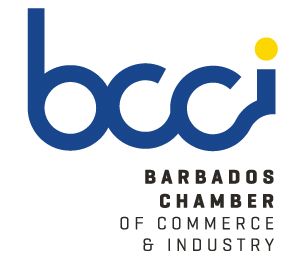Doing Business in Barbados
Introduction to Barbados
Facts at a Glance
| Land Area | 166 sq. miles (431 km) |
| Population | 284,215 |
| Capital City | Bridgetown |
| Currency | Barbadian Dollar |
| Language | English |
| Literacy | 99.7% |
| Life expectancy at birth (years) | 75 |
| Country Phone Code | 246 |
| Unemployment Rate(Q4, 2015) | 11.3% |
| Labour Force (‘000 persons) (2015) | 144.6 |
| Exchange Rate | US $1: BBD $2 |
| Major Industries | Tourism, Financial & Business Services |
| Principal Exports (top 10) | Medication for Therapeutic use, Other Petroleum oils from crude oil, Rum/Tafia, Building Cement, Other Artificial Parts of the Body, Cane Sugar, Instruments and Appliances used in Medical, Surgical/Vet. Sciences, Wirewound Variable Resistors, Other Drums, Tanks, Cask of Iron/Steel, Printed Paper Labels |
| Principal Imports (top 10) | Kerosene Type Jet Fuel, Motor Spirit (Gasoline), Diesel Oil, Bunker C Grade Fuel Oil, Soya Bean, Medication for Therapeutic use, Food Preparations
Corn, Optical Fibre Cables, Parts of Gas Turbines Gold Jewellery, Portable Radio-Telephones, Hatching Eggs |
| Major Trading Partners | United States, Trinidad & Tobago and the United Kingdom |
Background
Known for its white sandy beaches, Barbados – the 166 sq. mile island, has only flown the British flag prior to gaining independence. Many Caribbean islands have changed hands repeatedly over the centuries. The island is primarily focused on being a unique tropical tourism destination with a mix of high-class accommodation, made up of guest houses, hotels, apartments, villas and condominiums. Barbados has produced a 99% literacy rate.
Government
Barbados, the most easterly of all the Caribbean islands with coordinates 13° N, 59° W, is an independent island nation within the British Commonwealth. The island, which is divided into 11 parishes, achieved its independence from the United Kingdom on 30th November, 1966. The constitution was ratified on November 30th 1966. It is interesting to note that Barbados has one of the oldest Westminster-style parliaments in the western hemisphere. In June 2016, it would have been in existence for 377 years. Barbados is a parliamentary democracy and constitutional monarchy, recognising Queen Elizabeth II as head of state. She is represented by a Governor-General appointed on the recommendation of the Prime Minister. The country has a bicameral legislature and a mature social democratic party system, based on universal adult suffrage and total purity in elections. The two houses of parliament are the Senate and the House of Assembly. The island is divided into 11 parishes with 30 constituencies.

Legal System
Barbados has a legal system based on English common law and statutes. The courts administer the laws of Barbados, which consist solely of local legislation. The judicial system comprises a lower Magistrates courts and the Supreme Court, which includes a Court of Appeal and a High Court. The Attorney General is responsible for the administration of the legal and judicial system. Final appeal from Barbadian courts used to be to the Privy Council in England. Since the establishment of the Caribbean Court of Justice (CCJ), based in Trinidad and Tobago, it is now the final court of appeal.
Financial Services
Barbados offers a wide array of financial services provided by the traditional banking and also non-bank financial institutions. These institutions are made up of a central bank, commercial banks, credit unions, finance companies, mortgage finance companies, trust companies, insurance companies, pension funds, mutual funds, stock exchange, securities commission and a deposit insurance corporation.

Health Services
Barbados has a well-developed health care structure with medical services being offered by major hospitals, several clinics, health centres and nursing homes. The life expectancy at birth in this country is 75 years. Healthcare is available either publicly through the Queen Elizabeth Hospital and other polyclinics across the island or privately for those who choose to pay for services.
Transportation
Barbados has a well-established public transport system as well as private buses, vans and cars which are easily accessible. The buses, minibuses and minivans travel across most of the island with two terminals in the city of Bridgetown and one in the northern town – Speightstown.
Education
The educational system in Barbados ranges from preschool to university level. School is compulsory up to age 16 i.e. secondary level. Most students, however, go from preschool to primary, on to secondary and finally attend a tertiary institution. With a strong emphasis on education, the country has a 99.7% literacy rate. There are a number of government schools which are free at both the primary and secondary level; private primary and secondary schools; as well as special schools for the mentally and physically disabled.

Starting a Business
Health Requirements
- If you propose to start a business in food processing, child/geriatric care, a restaurant or a salon you should apply for an operating licence from the Ministry Of Health. This can be done through their main office at Jemmotts Lane, St. Michael or any Polyclinic on the island. Please note that your business’ premises will have to be inspected before a licence can be issued.
Legal Requirements
There are some key things that individuals must know before starting their own business:
- All businesses MUST register with The Corporate Affairs and Intellectual Property Office (CAIPO) located at 7th Floor, Baobab Tower, Warrens, St. Michael. You can register your business as a sole proprietorship, partnership or a limited liability company.
- In order to register as a sole proprietorship, you will need to select a business name which is acceptable to the Registrar
- A partnership agreement must be signed by you and your partner(s) to register as a partnership
- To register as a limited liability company, you should first consult an Attorney-at-Law.
- You should also register your business’ trademark or brand name with CAIPO.
- All businesses must register with the National Insurance Department, Sir Frank Walcott Building, Culloden Road, St. Michael, where you will be issued with an employer’s national insurance number.
- All businesses must register with the Barbados Revenue Authority, where you will be issued with an Employer’s Income Tax number and a Value Added Tax number. If you propose to offer any form of entertainment to the public, for example, a nightclub you may also obtain a Public Entertainment Licence there.
- If you propose to retail or sell liquor, a Retail Licence or a Liquor Licence must be obtained from the District Court that is responsible for your catchment area.
- You must obtain a Retail Licence or a Liquor Licence from the District Court that is responsible for your catchment area.
- You must obtain permission from The Copyright Society of Composers Authors & Publishers Inc. (COSCAP) and The Police Station that is responsible for your catchment area, if you want permission to play loud music at an event or at a specific location. (In many cases, one must obtain this permission in addition to an Entertainment Licence.)
- You must obtain a permit from the Child Care Board, Cheapside, Bridgetown, if you propose to get into the child care business.
- You must register with the Para Medical Professionals Council, Ministry Of Health, Jemmotts Lane, St. Michael, if you are interested in setting up a business in the medical profession.
- You must obtain a licence from the Ministry Of International Transport if you are setting up a Travel Agency or Tour Operator Business.
- You must ascertain from the Barbados National Standards Institute, Flodden, Culloden Road, St. Michael, whether any standards exists, quality or otherwise, with which your product needs to comply.
- You must seek approval from the Town and Country Development Planning Office if you wish to develop your property in any way or if you are considering locating your new business there.
Customs & Excise Requirements
- If you plan to import any raw materials and equipment for your business, you should ascertain from the Customs and Excise Department of the Central Revenue Authority whether import licences are required on any such items. If so, then register with the Customs and Excise department to receive an import number before proceeding with the importation of any items. Failure to do this may result in unnecessary delays or even an outright rejection of your items being passed for entry to the island.
- You must write a letter to the Comptroller of Customs, to request any duty concessions. This letter should include the name of the business; the type of operation; the location of the premises along with contact details.
- Register with the Barbados Investment and Development Corporation to facilitate the duty free entry of your products into the countries with which Barbados has bilateral trade agreements.
Double Taxation Treaty Access.
Treaty Jurisdictions:
Antigua and Barbuda, Austria, Belize, Botswana, Canada, China, Cuba, Czech Republic, Dominica, Finland, Grenada, Guyana, Iceland, Jamaica, Luxembourg, Malta, Mauritius, Mexico, Montserrat, Netherlands, Norway, Panama, Saint Kitts and Nevis, Saint Lucia, Saint Vincent and the Grenadines, Seychelles, Spain, Sweden, Trinidad and Tobago, United Kingdom, United States, Venezuela
Procedures for Operating a Duty Free Store
A retailer desirous of establishing/operating a duty free retail shop/outlet will need a license from the Customs and Excise Department.
The license is granted on condition that the items to be sold by the applicant fall within those items specified on the list of scheduled goods to be sold to tourists (appendix III) which includes a number of items that must be collected from the port of departure.
ITEMS FOR DELIVERY FROM THE PORT OF DEPARTURE (APPENDIX IV)
Spirits Car Stereo
Wines Tobacco
Home Computers Cigarettes, in containers of not less than 22
Video Sets Cigars, in boxes of not less than 25
Video Games Television Sets
Microwaves Video Recorders
Verification of relevant travel documents in order to be able to complete the duty free sale
- The visitor/customer must be in possession of a valid return flight (in the case of travel by air, e-tickets are most commonly used). In this regard, a copy of the visitor’s itinerary is acceptable. In addition, a copy of the return portion of the ED (embarkation/disembarkation) form can be used.
The travel documents are required to validate the name of the passenger, the date of departure, the airline and flight number.
- In the case of cruise ship passengers, since cruise ships do not issue a ticket, the identification of the ship showing the name and cabin number of the passenger would be equivalent to an airline ticket.
At present, the duty free scheme operates only on the in-bond system. This facility was put in place as part of the concessions within the 2008 Budget and Financial Statements. Under this system, the retailer imports the goods duty free and these goods are stored in a bonded warehouse. The duty is only paid to Customs when a sale is made to a person other than a visitor. It should be noted that “Goods may not be warehoused for a period exceeding two years without obtaining permission by written request for an extension from the proper officer”
Approval for the operation of a PRIVATE WAREHOUSE must be in writing to the Comptroller of Customs and must comply with conditions imposed in accordance with section 18 of the Customs Act, CAP. 66, Laws of Barbados, and are for the operation of warehouses approved by the Comptroller of Customs under the warehousing regime for the storage of goods chargeable with import duty or otherwise not in free circulation.
Retailers seeking to register under the in-bond scheme must:
- Acquire the third Schedule Invoices from a printery. Sales are effected on invoices which are prepared in quadruplicate.
- Have their point of sale system (both front and back end) computerized
- Have their premises inspected by an Officer of the Customs Department in order to determine its suitability.
- Be in possession of a certificate from the Fire Service since for the purpose of this scheme the retail premises or suitable location can be designated the bonded warehouse.
Only after the Comptroller of Customs issues a Certificate of Registration and the requisite inspection and invoices printed can the retailer operate as a bona Fide duty free shop. In this regard the retailer must submit monthly reports (on-line) to Customs. These reports must contain information on the number of items sold, the value of these items together with the date of importation and bill of lading number etc.
The Barbados Chamber of Commerce and Industry has established a Duty Free Committee which provides advocacy on behalf of its members who are operators in the trade. The Committee manages the scheme in Barbados and oversees the operation of a Facility at the Grantley Adams International Airport on behalf of the Customs Department. This facility is a sterile area and only authorised personnel are permitted within.
The facility is financed via the handling fees charged for the processing of documentation and the storage and delivery of packages. Those operators that are members of the Barbados Chamber of Commerce and Industry (BCCI) enjoy a very competitive rate. The actual rates can be obtained by calling the BCCI at 434-4750.
The facility provides the following services:
- Facilitates the receipt and storage of packages sold under appendix IV for retrieval by passengers prior to boarding.
- Receives/collects the original of the 3rd schedule (invoice) deposited by departing passengers.
A visitor making a duty free purchase must be given the original and duplicate copy of the third schedule (invoice) with instructions to deposit/drop off the original in the receptacles provided at the counter at the Barbados Chamber of Commerce and Industry’s booth in the departure lounge at Grantley Adams International Airport.
It should be noted that where visitors are departing the island by cruise ship, the original and duplicate invoices are given to the passengers with instructions to deposit the original in a special box provided which is located at Cruise Terminal.
- Processes and marries the original and triplicate of the third schedule (invoice) to allow for the examination by Customs. In this regard retailers are required to arrange to forward the triplicate copies of the third schedule (invoice) at least twenty-four (24) hours in advance of the departure of visitors.
- Facilitates the delivery of triplicate copies and the return of originals of the third schedule (invoices) to the retailer. In addition the Facility provides delivery books (at a nominal cost) to retailers which are used to submit copies of the third schedule (invoice) for review by Customs.
In addition to the foregoing, the Duty Free Committee via the Chamber’s Secretariat is committed to assisting new operators in the transition process. Our officers will
- Verify the template for invoices to be used by retailers when making a duty free sale.
- Provide advice on the procedure for making a sale as well as training for sales associates.
- Provide information on the operation of the Facility at Grantley Adams International Airport.
- Notify operators in the trade of changes in regulations to the scheme via circular letters and/or direct contact.
- Lobby and/or make representation to Government, Customs and other agencies for improvement in the trade.
- Recommend service providers which can deliver logistical support for new and existing retailers for a negotiated fee.
- Undertake to do what is necessary to promote Barbados as a Tax Free shopping destination.
Paying Taxes[1]
The Individual Income Tax Rate for income year 2009 and subsequent years is:
20% on the first $24,200.00 of taxable income
35% on the taxable income in excess of $24,200.00
The Corporation Tax Rate is:
25% of taxable income in respect of Income Year 2006 and subsequent years.
15% with effect from Income Year 2007 for approved small businesses under the Small Business Development Act.
15% for a company that is engaged in the business of manufacturing.
15% for a company that is engaged in the construction and sale of houses priced under $50,000 (inclusive of land).
15% for qualifying business under the Special Development Areas Act, Cap. 318C.
5% – Life Insurance Companies.
Taxation: 1% – 2.5% for an IBC
Below is a detailed summary of the bureaucratic and legal hurdles faced by entrepreneurs wishing to incorporate and register a new firm in Barbados. It examines the procedures, time and cost involved in launching a commercial or industrial firm with between 10 and 50 employees and start-up capital of 10 times the economy’s per-capita gross national income.[2]
| No. | Procedure | Time to Complete | Associated Costs |
| 1 | Submit Request for Name Search and Name Reservation form to the Corporate Affairs and Intellectual Property office to reserve company name
The name search and reservation can be done online through form 33. In the form, entrepreneur suggests 3 names in order of priority. The registrar checks that the proposed name is available and then returns the form to the entrepreneur with a tick on the name that is available. Name reservation is valid for 90 days. The actual form for name registration must be filed in person and collected from Corporate Affairs. Agency: Corporate Affairs and Intellectual Property Office. |
2 days | BBD 30 (BBD 25 for reserving the name + BBD 5 for electronic search) |
| 2 | Draft articles of incorporation
There is a standard form for articles of incorporation that is downloaded online from the registrar’s website: www.caipo.gov.bb The procedure to incorporate a Company must be completed in person. In addition to the articles of association, the following documents also need to be submitted to the registrar: – Notice of Directors – Notice of Address – Notice of secretary appointment Fees are set under the Legal Profession Act Cap. 370A, Remuneration for Non-Contentions Business Rules, 1997. Agency: Lawyer |
2 days |
BBD 1,500 |
| 3 | Submit application for business registration
Once the attorney submits all the above documents, the Corporate Affairs files the application and the articles of incorporation and assign a company number to the file. That company number will be included in the certificate of incorporation and inserted to the articles of incorporation.
Agency: Registrar of Corporate Affairs |
10 days on average |
No charge |
| 4 | * Pay the registration fees
Fees are paid to the in-house cashier (a separate person receives the document and payment is done at a separate window). The fee can be paid online as well, but few businesses have adopted the practice.
Agency: Payment |
1 day (simultaneous with previous procedure) |
BBD 750 |
| 5 | Register with the Inland Revenue Department for income tax payment
The following documents need to be submitted to the Barbados Revenue Authority: 1. Form for CIT registration 2. Copy of articles of incorporation 3. Copy of Certificate of Incorporation
Agency: Barbados Revenue Authority |
2 days |
No charge |
| 6 | * Register with the VAT division of the Customs and Excise Department
A company with income in excess of 200,000 BDS (USD 100,000) per year has to register for VAT. The following documents need to be submitted to the VAT division of the Customs and Excise Department: 1. Form of VAT registration 2. Copy of articles of incorporation 3. Bank references of the directors
Agency: Customs and Excise Department |
2 days (simultaneous with previous procedure) |
No charge |
| 7 | * Register with the National Insurance Scheme
All business founders must register with the National Insurance Scheme.
Agency: National Insurance |
2 days (simultaneous with previous procedure) |
No charge |
| 8 | * Make company seal According to Section 25 of the Companies Act, a company must have a common seal with its name engraved on it. Lawyers also confirmed that as a matter of practice, a company must seal all of its documents when doing business with other parties (e.g. borrowing for a mortgage). Business in practice cannot be done without a seal.Agency: Private printing shop |
1 day (simultaneous with previous procedure) |
BBD 60 |
International Business Types[3]
Regular Barbados Companies (RBCs) are generally incorporated under the Companies Act of Barbados and may only carry on international business with permission of the Central Bank of Barbados.
Societies with Restricted Liability (SRLs) are organised under the Societies with Restricted Liability Act and may only carry on international business with permission of the Central Bank of Barbados. The main difference between an RBC and an SRL is that an SRL may, under certain conditions, be treated as a disregarded entity for US tax purposes, and is therefore more often seen in cases where there are investors from the US.
International Business Companies (IBCs) are generally incorporated under the Companies Act of Barbados and must only carry on international business (i.e., generally cannot trade in Barbados). An IBC must apply to the Minister responsible for International Business to obtain an International Business Licence. The procedure is as follows:
- Incorporation or registration under the Companies Act.
- Application for an IBC licence from the International Business Unit providing information on:
- Description of intended business
- Name and address of proposed shareholders
- Percentage of shares to be held
- To qualify as an IBC, a company cannot be owned by a resident of Barbados and may not trade goods or services in Barbados or the CARICOM Area.
International Societies with Restricted Liability (ISRLs) are organised under the Societies with Restricted Liability Act (SRL Act) of Barbados and must also apply to the Minister responsible for International Business to obtain an International Business Licence. An ISRL may not acquire or hold land in Barbados, other than land required for its business held by way of lease or a tenancy agreement nor transact business with any Barbados residents. Like SRLs, ISRLs may be treated as disregarded entities for US tax purposes. The steps include:
- Filing of articles of organisation to the registrar providing information on:
- Proposed name
- Purpose
- Duration
- Name & address of each person who signed the articles of organisation
- Application for ISRL licence
Exempt Insurance Companies (EICs) are generally incorporated under the Companies Act of Barbados and must apply for a licence under the Exempt Insurance Act (EIC Act). One of the requirements to qualify for an EIC licence is that the company’s object and activities are the transaction of “exempt insurance”. Exempt insurance is defined in the EIC Act as the business of insuring risks located outside Barbados in respect of which premiums originate outside Barbados, and includes the business of an underwriter, broker, agent, dealer or salesman in respect of that business.
Qualifying Insurance Companies (QICs) are generally incorporated under the Companies Act of Barbados, registered as insurers under the Insurance Act and must apply for a certificate to qualify as a QIC under the Insurance Act. One of the requirements to qualify as a QIC is that the company is a registered insurer in respect of which at least 90% of gross revenues from insurance premiums originate outside CARICOM and at least 90% of all risks insured originate outside CARICOM.
International Banks (IBs) are generally incorporated under the Companies Act and must apply for a licence to operate as an international bank under the International Financial Services Act. Such a licence is required to carry on any international financial service in or from within Barbados. Following are the steps to establishing an International Bank:
- Preliminary application must be made to the Central Bank of Barbados
- Application for a licence providing information on:
- Description of the financial service to be provided
- Financial projections
- Names & addresses of the directors
- Names & addresses of the shareholders
- Number of shares to be held
- Final application made to the Director of Bank Supervision
Incorporation & Registration with the Corporate Affairs and Intellectual Property Office
Information required to complete this:
- Proposed names of company – A minimum of two corporate names (in order of preference);
- The official address in Barbados where the share registers, minute books and other statutory information will be kept.
- The minimum and maximum number of directors (a company can have a minimum of one director).
- The full name (including the middle name) and residential address of each of the proposed directors of the company;
- Details of the particular business that the company proposes to carry on;
- The classes of shares (if more than one) that the company is authorised to issue; and
Exporting & Importing
The facilitation of legitimate trade and law enforcement is the responsibility of the Barbados Customs and Excise Department. There are two classifications of goods:
- The Harmonised Commodity Description and Coding System (HS) – an internationally standardized system of names and numbers for classifying traded products developed and maintained by the World Customs Organisation (WCO).
- The World Trade Organisation (WTO) agreement on customs valuation aims for a fair, uniform and neutral system for the valuation of goods for customs purposes. It is a systems that conforms to commercial realities, which outlaws the use of arbitrary or fictitious customs values.
The four main import taxes are:
- Import Duty
- Environmental Levy
- Excise Tax and
- Value Added Tax
Import Duty ranges from 0 per cent to 20 per cent of the CIF (Cost + Insurance + Freight) value on most items. There are some exceptions which include bound rates which range from 40 per cent to 196 per cent on specified agricultural and manufactured products.
Labour Law
The various pieces of legislation make provision for:
- Prohibitions against unfair dismissal
- Prohibitions against unlawful discrimination
- Equal remuneration for work of equal value
- Holiday with pay for employees
- Maternity leave to female employees and for the protection of the employment of those employees during such leave
- The hours of duty of domestic employees
- The establishment of employment exchanges and for purposes connected therewith
- The protection of wages of workers
- The making by employers of severance payments to employees who cease to be employed in circumstances amounting to redundancy and for related matters
- Securing the health, safety and welfare of persons at work
- Protecting other persons against risks to health and safety in connection with the activities of persons at work
- Controlling certain emissions into the environment

**Link to employment rights act – BEC**
http://barbadosemployers.com/wp-content/uploads/2012/09/Employment-Rights-Act-2012-9.pdf
[1] The Barbados Revenue Authority
[2] Doing Business Database
* Takes place simultaneously with another procedure.
Note: Online procedures account for 0.5 days in the total time calculation.
[3] Barbados International Business Association (BIBA)







